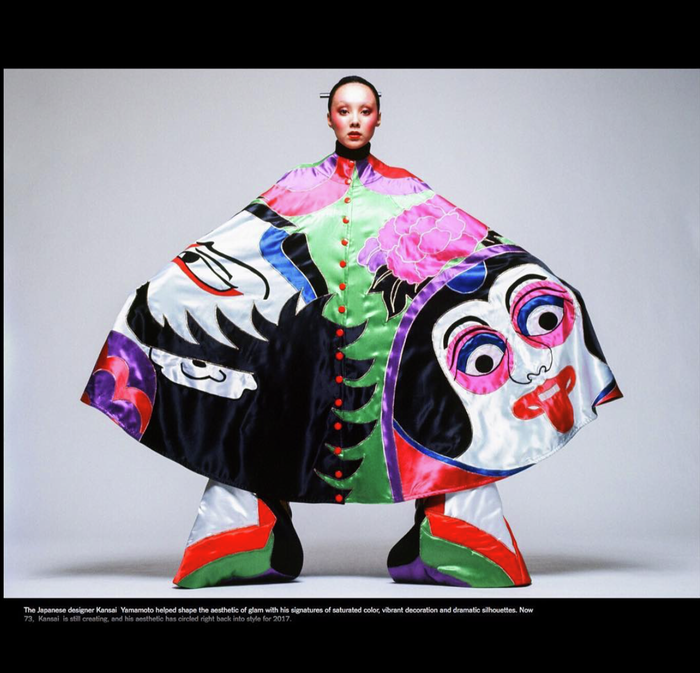Helsinki Fashion Week – ‘between IRL and URL’
With the start of Helsinki Fashion Week, Fashion Editor Isabel Sebode presents the innovative new medium to bring fashion into the market digitally. 3D Helsinki Fashion Week, 27th of July – 2nd of August 2020
“By merging our technical skills and artistic vision, we strive to remove the boundaries between IRL and URL, knowing that 3D technology can contribute and create a big change in perspective when it comes to supply chains and sustainability in Fashion”, writes Caroline Dussuel, Co-Founder at Scotomalab, the leading digital design company involved in Helsinki Fashion Week. Whilst talk around virtual fashion weeks is becoming louder in light of the social distancing measures, Helsinki has already made the crucial step. The Fall/Winter collections will be shown in in the world’s first 3D Fashion Week.
With its aims to improve the transparency, drive conversation and facilitate market research, Helsinki Fashion Week is going to make use of Artificial Intelligence and a digital space in order to drive conversation, create a real-life cyber event and thereby facilitate the remote buying experience. Besides the cyber innovation, HFW is collaborating with companies whose objectives are focused around sustainability. That includes sustainable textile production, as the low-carbon event seeks to keep its emissions to a minimum in front and behind of the screen – a step towards the goal of minimising the (very real) carbon footprint of the (virtual) Fashion Week.
Helsinki Fashion Week is a pioneer in many aspects. Launching the week of events with a Designer-in-Residence Concept, it is bringing together sustainable production, industry newcomers and the digital future. During the (virtual) Designer Residency 20th to the 26th of July 2020, 15 sustainable designers from around the world engaged in collaboration with a sustainable mindset to reuse materials and create their collections. This collaborative project was livestreamed and broadcasted, to show the process from idea to unpredictable result.
“No filters, no facades, only collaboration and transparency.”
Instead of shutting down any possibilities of Fashion Week during the current circumstances, HFW is opening the industry more than it has even been before and thereby invited the general public both into the creation process and the presentation of results. Whilst close to 100 buyers are privately invited to join the virtual fashion week experience, consumers can access the online content via Instagram and at digitalvillage.io. “No filters, no facades, only collaboration and transparency”, writes Evelyn Mora, Founder of Helsinki Fashion Week.
In terms of space, HFW has moved from its Eco Village in 2018 and Bio Playground in 2019 to the Cyberspace of 2020, the newest and arguably most sustainable fashion environment. Based on the consumer’s personal data that is collected by browsing the web, HFW uses an algorithm to present content according to preferences: a distinctly transparent process in which sharing the digital footprint with the consumer is prioritised. Partnering with the fashion blockchain LUKSO, HFW shows how frameworks are created to visualise the interests of different participants in the supply chain – that being the participants involved from production to consumption. “The blockchain technology”, says Marjorie Hernandez (co-founder of LUKSO) will allow us to “curate and own our digital identities, empowering consumers and creators, and challenging the current power dynamics within the fashion industry”. In other words, content is appropriated to our fashion identities, and done so in an open process that involves the consumer and opens up the gates to us for a view into the processes behind production and consumption.
Beyond this, HFW will present its shows in a ‘Cyberspace Universe’ using 3D technology produced by NDS Paris and Soldats Films. The results are dazzling, ethereal graphics and textures that accurately reflect the textiles of the clothes. Additionally, through the feature of real-time reactions, feedback can be given directly and is presented in an accessible manner. Fashion Week is opened up to the buyers and consumers, in an uninhibited and subsequently highly productive process.
From using 3D silhouettes that perfectly depict the pieces of the designers involved, to making use of AI and Blockchain, Helsinki Fashion Week is adapting and driving progress. These are exciting times in the fashion industry, and we are all eager to see how other cities deal with the changing circumstances.
Head over to @helsinkifashionweekofficial to see the process, and https://digitalvillage.io to join the Digital Sanctuary and watch the shows.
 News / Hundreds of Cambridge academics demand vote on fate of vet course20 February 2026
News / Hundreds of Cambridge academics demand vote on fate of vet course20 February 2026 News / Judge Business School advisor resigns over Epstein and Andrew links18 February 2026
News / Judge Business School advisor resigns over Epstein and Andrew links18 February 2026 News / University Council rescinds University Centre membership20 February 2026
News / University Council rescinds University Centre membership20 February 2026 News / Petition demands University reverse decision on vegan menu20 February 2026
News / Petition demands University reverse decision on vegan menu20 February 2026 News / Caius students fail to pass Pride flag proposal20 February 2026
News / Caius students fail to pass Pride flag proposal20 February 2026











